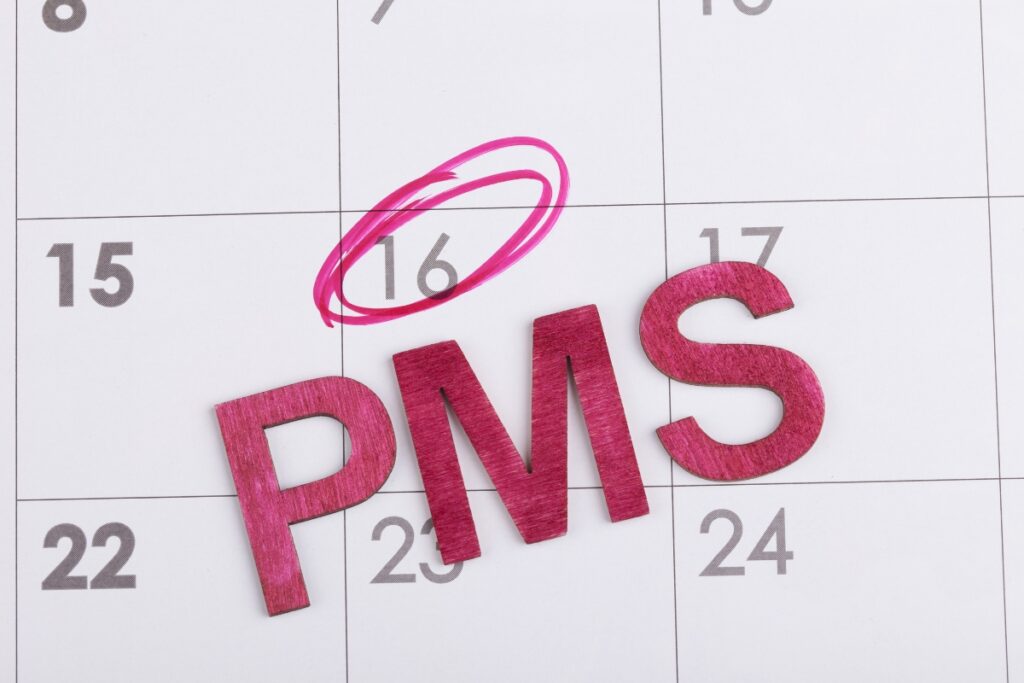
Is This Normal? – Mental Health, Endometriosis, PC
By Jillian Lopiano, MD, MPH, FACOG
Betty’s Co. Medical Director
Is it normal to have extreme PMS symptoms?
Quick refresher: Pre-menstrual syndrome (PMS) is a cluster of symptoms that show up somewhere around five days before your period. Period-havers might experience a range of pains – from mood swings and cramps to cravings and fatigue. Think of these real physiological expressions as your body’s weather forecast, giving you a heads-up that your period is on its way.
So while PMS is a pain, most experiences fall within the “normal” range. And usually, there’s a simple solution to managing symptoms– light exercise, rest, healthy nutrition (plus craving extras!), and over-the-counter medications for relief. But for some, the hormone fluctuations can be extreme and life-interfering.
Pre-menstrual dysphoric disorder (PMDD) is a severe type of PMS. Think: all the symptoms of PMS with the dial turned way up. This underdiagnosed and undertreated condition differs from PMS in symptom intensity and its impact on your daily life.
If you’re looking to hack your PMS, first things first: track that cycle, Betties! Keep a tab on your physical and mental well-being – mood, energy levels, pains, and cravings! This is a great way to figure out if your unique symptoms are crossing into PMDD territory. Tracking is one of the best tools for body literacy, allowing you to learn your “normal” and notice any concerning trends. If/when you loop in your provider, this cycle diary provides the insight for them to create a you-centric care plan for managing PMS/PMDD.
Is it normal to have very painful periods?
Cramping, throbbing, and aching are unfortunate regulars for most Betties’ cycles that can typically be self-remedied (see above!). But if you’re experiencing pain that is life-disruptive, listen to your body and contact your provider. This type of pain before + during your period could be indicative of a more serious issue, such as uterine fibroids and endometriosis. These conditions, and menstrual pains in general, are under-researched, underdiagnosed, and undertreated, but not uncommon.
Period pain is linked to nearly 9 days of lost productivity for a woman in a year! The stats are staggering and highlight the need for further research, wider awareness, and deeper patient-to-provider discussions. Half of my job as a Betty’s Co. provider is simply listening and affirming Betties’ experiences, so we can work together to find them relief.
Is it normal to see a doctor every year if I’m healthy?
I love this question because it points to why Betty’s Co. exists. By seeking preventative care, you invest in your future self!
Many conditions (too many to list here without blowing our word count!) are entirely treatable when detected early. So even though an annual visit might seem like the same song and dance, your primary care provider makes an assessment tailored to where you are right now – age, demographic, and lifestyle.
For example, we typically screen younger women for sexually transmitted infections and cervical cancer. As you age, these screenings will come to include mammograms, hypertension, and diabetes. A primary care physician will also make sure you’re up to date on your vaccines – a simple and critical component of disease prevention.
Additionally, many providers will screen for mental health and lifestyle conditions to make interventions, such as counseling, behavioral medication, or smoking cessation. Think of your annual check-up as a whole-self health scan!
And look, even I, a medical provider, can admit it’s hard to make room in the planner for that appointment. But you have more than a few reasons to make it a priority, and healthcare has come a long way to make it more convenient to do so. Virtual care and a mobile clinic are a few ways Betty’s Co. has revolutionized care to meet you where you truly are. With more accessible options for care, you can be more intentional in taking action to protect your health.
Betty’s Co. is the next generation of integrative healthcare – providing gynecology, mental health, and wellness care for the period-havers up to pregnancy-planners. Women’s health is surrounded by stigmas and taboo topics, often preventing them from accessing the care they need. “Is This Normal?” is an ongoing Q&A series we host to give our “Betties” the space to ask the awkward questions, develop body literacy and ultimately, normalize women’s health.









0 Comments